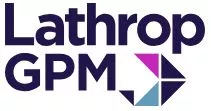As we reported previously, California's Senate Bill 1162 now requires private employers with 100 or more employees to submit pay data reports to the Civil Rights Department (formerly known as the Department of Fair Employment and Housing). If a company hires 100 or more workers through labor contractors, it must submit a separate pay data report.
The required reports concerning pay data must include:
- the number of employees by race, ethnicity, and sex in ten defined job categories;
- the number of employees by race, ethnicity and sex whose annual wages fall within each pay band used by the United States Bureau of Labor Statistics in its Occupational Employment Statistics survey; and
- the mean and median hourly rate of pay for each combination of race, ethnicity and sex within each job category.
Many companies have requested pay data from their vendors or sub-contractors, prompting confusion and questions about the definition of a "labor contractor."
SB 1162 defines a "labor contractor" as an individual or entity that supplies a client employer with workers to perform labor within the client employer's usual course of business. Government Code Section 12999(k)(2). A client employer's "usual course of business," in turn, means the regular and customary work of the client employer. "Regular and customary work" consists of work that is performed on a regular or routine basis that is either part of the client employer's customary business or necessary for its preservation or maintenance, but does not include isolated or one-time tasks.
In response to questions and continued confusion about the definition, the Civil Rights Department has published examples that illustrate its interpretation of SB 1162 and the definition of a "labor contractor" that is required to disclose pay data. The examples include:
- Example 1: Farmworkers contracted seasonally to pick fruit for a client employer's farm would be performing work within the client employer's usual course of business because the work is performed on a routine basis and is part of the client employer's customary business.
- Example 2: Janitorial staff performing nightly cleaning and general maintenance of a client employer's premises would be performing work within the employer's usual course of business because the work is performed on a regular basis and is necessary for the maintenance of the client employer's customary business.
- Example 3: Catering staff contracted to serve food at a trucking company's tenth anniversary party would not be performing work within the client employer's usual course of business, assuming catering a party is an isolated occurrence for the company.
- Example 4: Accountants hired to perform an external audit of a fitness company's financial statements would not be performing work within the client employer's usual course of business, assuming financial auditing is an isolated occurrence for the company.
An individual performing work within the client employer's usual course of business is a labor contractor employee if that individual is on a labor contractor's payroll and the labor contractor withholds Social Security taxes from that individual's wages.
The Civil Rights Division's FAQs concerning the pay data reporting obligations created by SB 1162 may be found here.
SB 1162 imposes extensive new obligations on many employers, and the confusion surrounding it can create friction between companies that operate as business partners.
The content of this article is intended to provide a general guide to the subject matter. Specialist advice should be sought about your specific circumstances.











